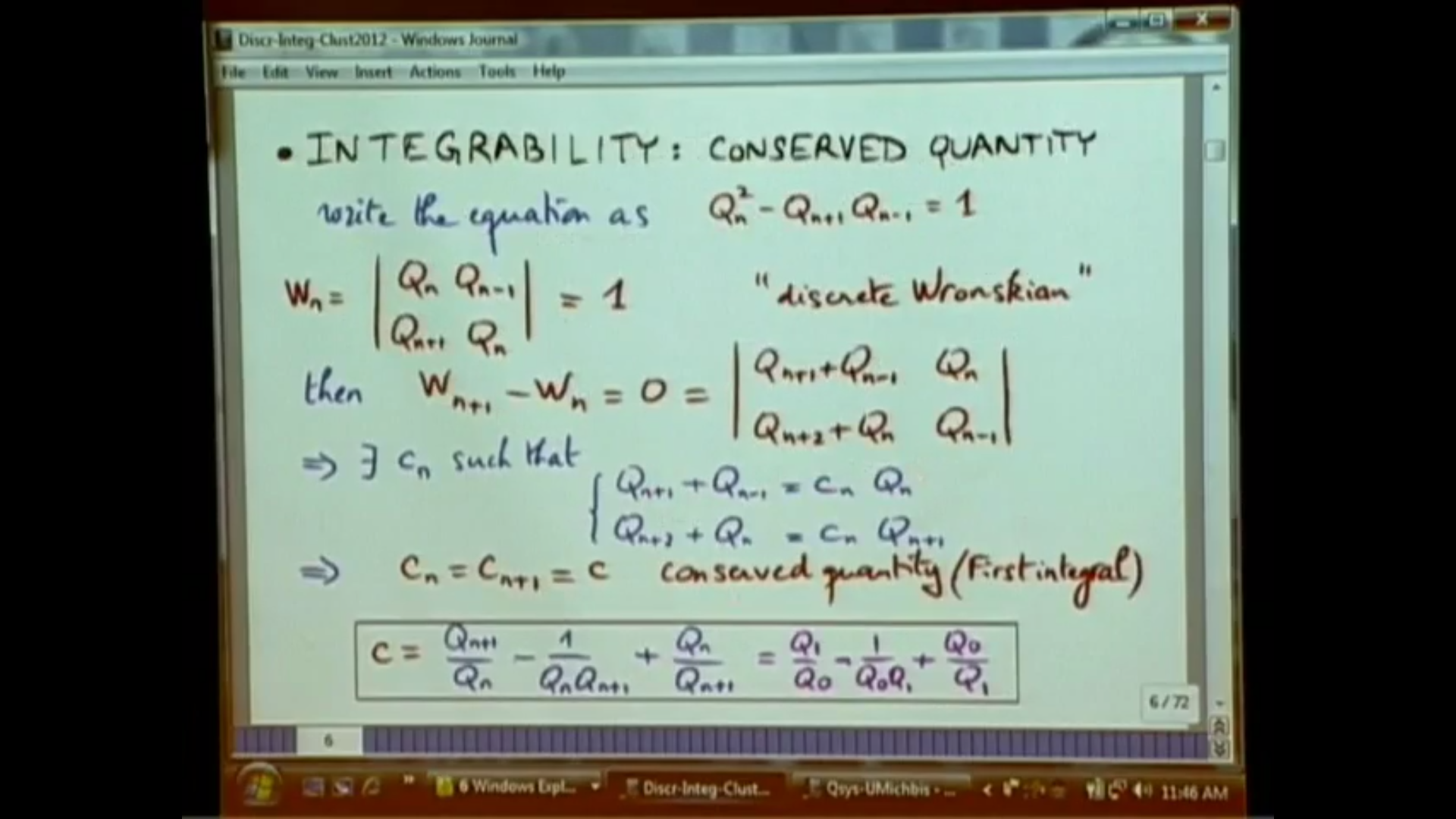Discrete Integrable Systems and Cluster Algebras
Presenter
January 17, 2012
Keywords:
- lattice theory
- lattice models in mechanics
- SLE
- cluster algebras
- wall crossings
- integrable systems
- Laurent polynomials
- Fomin-Zelevinsky theorem
MSC:
- 60K35
- 60J65
- 60J67
- 60Jxx
- 60-xx
- 82-xx
- 06-xx
- 13F60
- 13F25
Abstract
Recursive systems arising from integrable quantum spin chains, such as Q,T and Y-systems display remarkable combinatorial properties. These are actually part of a more general mathematical structure called Cluster Algebras, introduced by Fomin and Zelevinsky around 2000, and which has found a host of mathematical applications so far, ranging from the theory of total positivity, invariants in algebraic geometry, to the representation theory of quantum groups. A cluster algebra is a sort of dynamical system describing the mutation of a vector of data along the edges of an infinite tree, with rules guaranteeing that only Laurent polynomials of the initial data are generated. A longstanding conjecture of Fomin and Zelevinsky states that these have non-negative integer coefficients.
In this talk, we will describe the very simple example of discrete integrable systems, and use their exact solutions in terms of paths on graphs or networks to explain this positive Laurent phenomenon. Non-commutative extensions will also be discussed.
